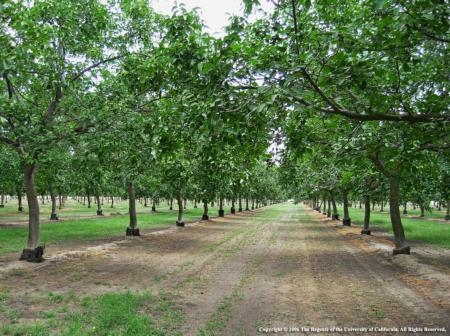Posts Tagged: Richard Rominger
UC research predicts climate change effects in California
The report, the third such assessment since 2006, provides new data to help Californians plan and adapt to climate change.
"Significant increases in wildfires, floods, severe storms, drought and heat waves are clear evidence that climate change is happening now. California is stepping up to lead the way in preparing for — and adapting to — this change," said state Secretary for Natural Resources John Laird. "These reports use cutting-edge science to provide an analytical roadmap, pointing the way for taking concrete steps to protect our natural resources and all Californians."
A study led by Louise Jackson, UC Cooperative Extension specialist in the Department of Plant Sciences at UC Davis, took an inventory of greenhouse gas emissions on Yolo County farmland and studied how agriculture can adapt to climate change.
An op-ed co-authored by Richard Rominger, a farmer and member of the UC President’s Advisory Commission on Agriculture and Natural Resources, and published in the Sacramento Bee noted the study “found that urban land accounts for 70 times more greenhouse gas emissions per acre than cropland.” A good reason to protect cropland.
The website based on the Jackson study provides a tool for Yolo County farmers and policymakers to plan for the changes that occur at the regional level with climate change.
For planning on a larger scale, a coalition of scientists and state agencies has developed Cal-adapt, a web-based climate adaptation planning tool. Cal-adapt allows users to identify potential climate change risks in specific geographic areas throughout the state. Users can query by location or click on an interactive map to explore what climate impacts are projected to occur in different regions of the state.
“Climate change is expected to affect the quantity and timing of water flow in the state,” explained Kaveh Madani, a former postdoctoral research scholar in UC Riverside’s Water Science and Policy Center, who led a research project on climate change effects on hydropower production, demand, and pricing in California.
“If California loses snowpack under climate warming, these high-elevation reservoirs might not be able to store enough water for hydropower generation in summer months when the demand is much higher and hydropower is priced higher,” said Madani, currently an assistant professor of civil, environmental, and construction engineering at the University of Central Florida. “California might, therefore, lose hydropower in warmer months and hydropower operators may lose considerable revenues.”
Max Moritz, UC Cooperative Extension specialist in the Department of Environmental Science, Policy and Management at UC Berkeley, contributed a paper to the extensive report about increased vulnerability to wildland fires in the state.
“The incredible breadth of studies, as well as the depth of their analyses, reveals just how much the University of California has to offer in preparing us all to adapt to a changing climate,” Moritz said of the full report.
Read more on specific campus researchers' contributions to the report in these news releases:
- UC Berkeley: State taps UC researchers for expertise on climate change impacts
- UC Davis: Scientists examine California's vulnerability to climate change
- UC Merced: More homes in danger from fire in coming decades
- UC Riverside: California’s hydroelectricity production is vulnerable to climate change
- Scripps: More hot Julys, rises in sea level three feet or more forecast
For highlights of the reports in Our Changing Climate, see the California Energy Commission’s press release. The full reports can be downloaded from the CEC’s website.


